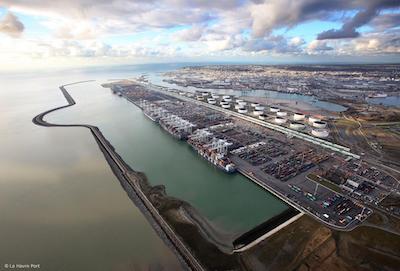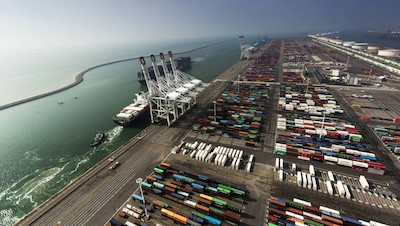November 24-26, 2021
ILI-VS Institut pour une logistique intelligente en Vallée de Seine
Université Le Havre Normandie

New Deadline for submission : 18 July 2021
Call for Papers
This international conference aims to bring together researchers and experts on the subject of logistics corridors. They play a crucial role in the organisation of logistics chains and the land-sea continuum. They are a key element in the performance of ports in serving their hinterland. They require a strategic vision and raise applied research questions. The issues and developments targeted by these corridors call for multi-scale approaches driven by major technological, digital and ecological changes. One of the fundamental questions concerns the governance and global management of logistics flows along the corridors.
The monitoring and control of these logistics flows now requires new generations of integrated logistics information systems managing sensors, multiple data and artificial intelligence in a pervasive, frugal and sustainable approach (AIS data collection, IoT for port infrastructures and environmental monitoring, blockchain, robotics and drones)

Our preferred field of study is the Seine Valley. Local operators will be invited to shed light on the major issues associated with this corridor. However, the other major corridors will also be examined in order to show the recurrence of the questions raised from one corridor to another and the answers that can be provided.
The expected contributions will thus provide an insight into the thinking and research on these subjects. They may be divided into the following five sessions :
Session 1 : Thinking at the corridor level

The problem of the significant fragmentation of the various logistics operators is widely observed on the corridors, particularly in the Seine Valley. A key issue is therefore to succeed in coordinating the players in the logistics chain on the corridor so that it is thought of in its entirety and not in terms of sectoral and compartmentalised approaches. This global vision requires corridor logistics to be included in the major economic, social, environmental and political issues of the day, while bringing logistics closer to everyday life. How can we give meaning to the notion of a corridor and make it functional? Approaches must be transversal, not limited to the Seine axis but extended to other French or foreign corridors and include the territories that are irrigated by these corridors.
Session 2 : Access and deployment of data for a global view of the corridor

A global and coordinated vision of the corridor is not possible without a precise knowledge of the multiple flows that irrigate it: physical, financial and information flows. Would it be possible to set up a control tower for all these logistical flows in order to move towards this global vision of the corridor? It is clear that there is a great lack of knowledge of these flows, which are scattered among the various operators. This great opacity is an obstacle to improving the logistics offer. Companies or administrations have their own tools for their own flows. The data exist but are compartmentalised and compartmentalised. There is no global vision. How can databases on flows be set up? How to have access to data ?
Session 3 : Optimising logistics

At stake here are questions of supply chain efficiency. How can we make logistics chains as efficient as possible? What contribution can logistics make to the fight against waste? The efficiency of the logistics chain contributes to the economic competitiveness of companies and, by repercussion, of territories, the national territory and Europe in the world. In the logistics chain, the role of the port is crucial as a place of articulation between the different modes of transport. Research on the optimisation of the logistics chain can be approached in different ways :
- By modelling physical flows (road traffic, maritime/inland waterway traffic to be optimised, etc.),
- By regulatory aspects,
- By understanding the logic of the actors in the logistics chain (their interests, their objectives, etc.).
Contributions may deal with these approaches separately, in a complementary way or to show their possible integration in a single system.
Session 4 : Technological transitions and risks

Like other economic sectors, logistics must be part of the technological transitions underway: energy transition (hydrogen, clean production and propulsion systems), digital transition (IS technologies in ports, blockchain) and artificial intelligence, vehicle autonomy. How are these transitions factors of progress for the logistics chains on the corridor? What are the risks associated with these transitions? What risk-based approach to logistics?
Session 5 : Planning, territorial footprint and environment

Logistics has a strong territorial footprint due to the multiple infrastructures it requires. It can be assumed that the transitions underway will modify this territorial footprint without necessarily reducing it. How can this territorial footprint be measured? How can logistics infrastructures be developed to serve an efficient corridor, while integrating them into the territories, taking into account other activities, the inhabitants and the environment?
SPONSORS










